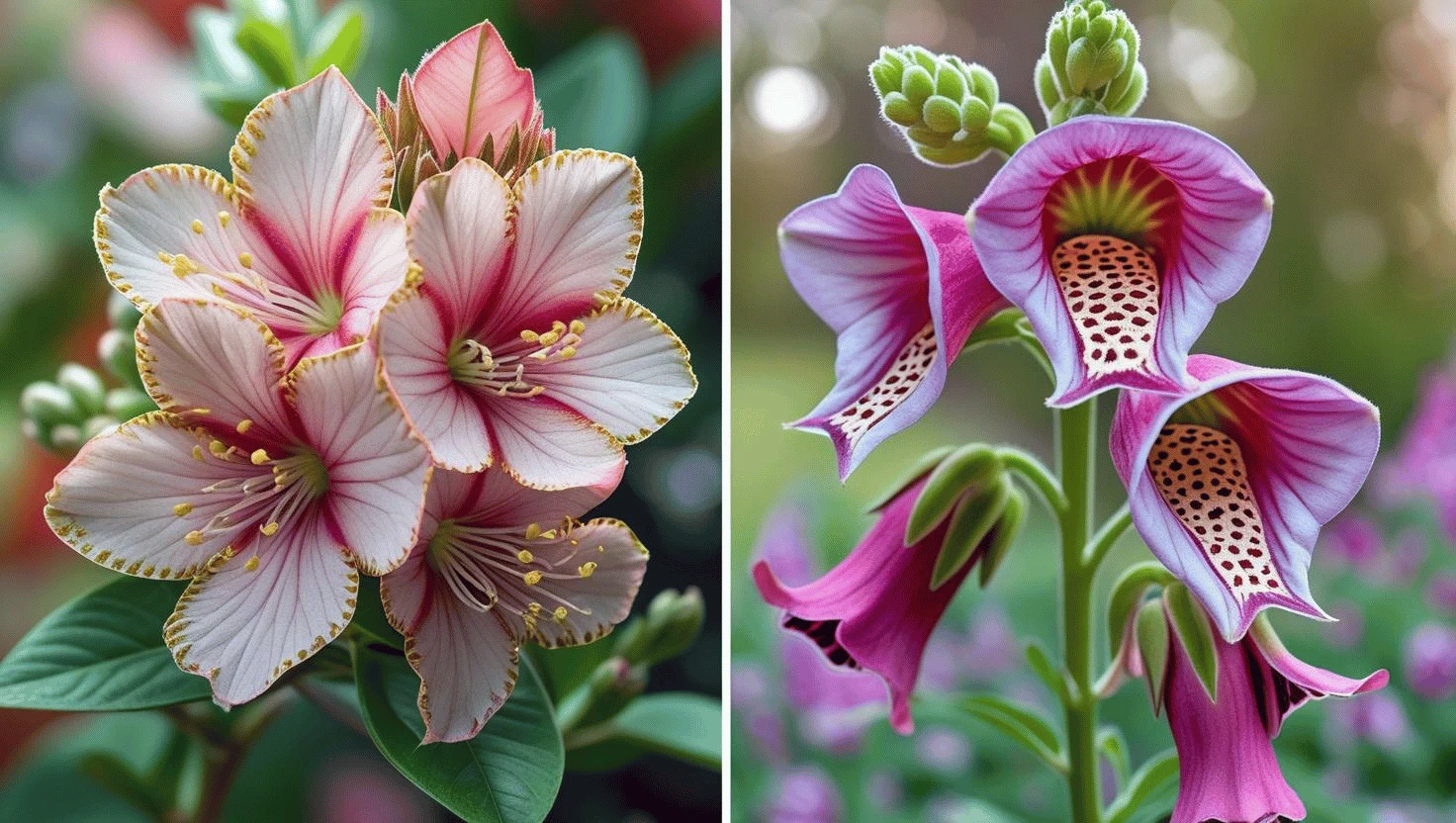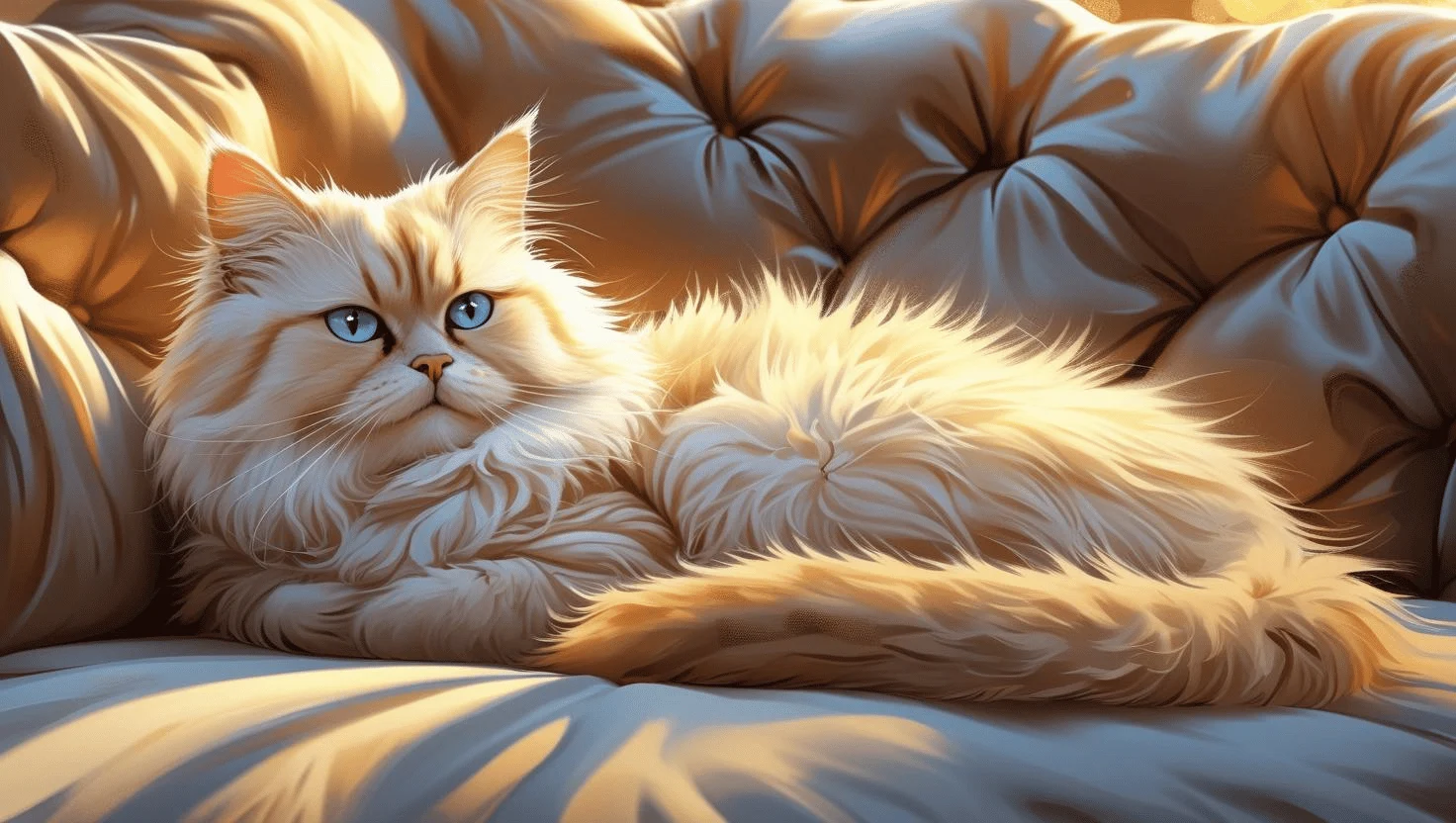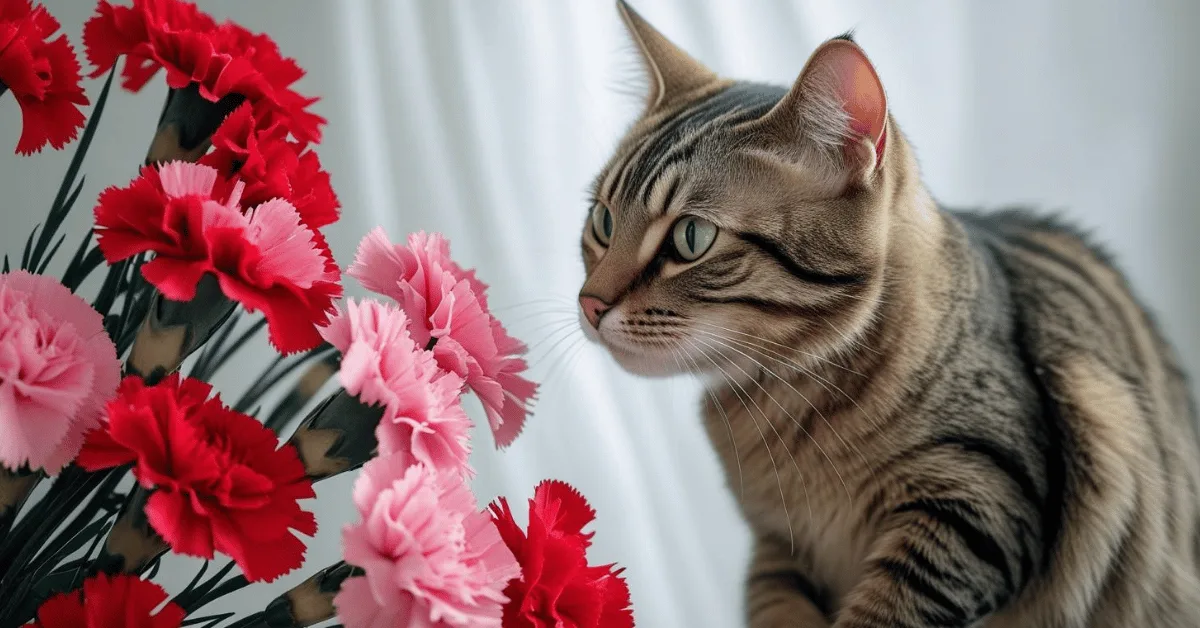Fresh flowers can brighten any home, but for cat owners, they can also pose hidden dangers. Cats are naturally curious and often chew on petals or leaves, making it important to know which plants are safe.
Why Carnations Are Toxic to Cats
Carnations contain natural compounds that can irritate a cat’s digestive system. While they aren’t as deadly as lilies, they are not safe for felines.
The Toxic Compounds
Carnations contain triterpenoid saponins, which can cause gastrointestinal distress in cats if ingested.
Level of Toxicity
- Mild compared to highly toxic flowers like lilies or tulips
- Still harmful enough to cause noticeable discomfort
- Best avoided in homes with cats
Symptoms of Carnation Poisoning in Cats
If your cat nibbles on carnations, watch for these warning signs.
Common Symptoms Include:
- Drooling and pawing at the mouth
- Vomiting or diarrhea
- Loss of appetite
- Lethargy or weakness
- Mild skin irritation if exposed to the sap
Most cases are not fatal, but immediate care helps prevent dehydration or further complications.
What to Do If Your Cat Eats a Carnation

Act quickly if you suspect your cat has ingested carnations.
Immediate Steps
- Remove any remaining plant material from your cat’s mouth.
- Rinse their mouth gently with fresh water if possible.
- Offer clean drinking water to flush out irritants.
When to Call the Vet
- If vomiting or diarrhea persists for more than 24 hours
- If your cat refuses to eat or drink
- If you notice signs of weakness or dehydration
How Vets Diagnose and Treat Carnation Poisoning
Veterinary care is sometimes needed if symptoms don’t resolve quickly.
Diagnosis Process
- Reviewing your cat’s medical history
- Physical exam and checking for oral irritation
- Possible bloodwork or imaging if symptoms are severe
Treatment Options
- Fluids to prevent dehydration
- Anti-nausea medication to stop vomiting
- Activated charcoal in rare cases to absorb toxins
Related Articles
- Why Your Cat Follows You Everywhere
- How to Clean a Cat Without Water?
- How to Bathe a Cat That Hates Water?
- Can Cats Sense Depression and Anxiety in Humans?
Safe Alternatives to Carnations
You don’t have to give up flowers entirely—many safe alternatives exist.
Cat-Safe Flowers
- Roses (Rosa spp.)
- Sunflowers (Helianthus annuus)
- Orchids (Orchidaceae)
- Gerbera daisies (Gerbera jamesonii)
Cat-Friendly Greenery
- Spider plants (Chlorophytum comosum)
- Areca palms (Dypsis lutescens)
- Cat grass (Dactylis glomerata)
These plants add beauty without putting your feline at risk.
Flowers That Are Extremely Dangerous to Cats

Some flowers are far more harmful than carnations. As a cat owner, it’s important to recognize the highest-risk varieties.
Avoid These Deadly Plants:
- Lilies (can cause kidney failure, even from pollen exposure)
- Sago palm (leads to liver failure if ingested)
- Azaleas and rhododendrons (cause severe vomiting and cardiac issues)
- Tulips and daffodils (contain toxic alkaloids that irritate the stomach)
Why Cats Are Drawn to Flowers
Understanding feline behaviour helps explain why cats chew on carnations and other plants.
Curiosity and Playfulness
Cats often bat at flowers, attracted by their colors, movement, and fragrance.
Chewing Instincts
Many cats chew greenery as a form of play or to help with digestion—similar to how wild cats consume grass.
How to Cat-Proof Your Flower Arrangements
If you love fresh blooms, you can still decorate safely by making smart choices.
Practical Tips
- Place flowers in rooms your cat doesn’t access.
- Use sturdy vases that cats can’t easily tip over.
- Create “cat-safe bouquets” with roses, sunflowers, and orchids.
- Keep toxic flowers out of your home entirely.
Long-Term Health Risks of Repeated Exposure
While carnations usually cause mild symptoms, repeated exposure can affect your cat’s overall health.
Possible Long-Term Issues
- Chronic stomach irritation
- Reduced appetite due to digestive discomfort
- Stress or anxiety if nausea persists
Avoiding toxic plants entirely helps prevent these risks.
Keep Cats Safe by Avoiding Carnations

The safest choice is to avoid bringing them into your home and instead choose cat-safe flowers and greenery. By doing so, you can enjoy a beautiful home environment while keeping your cat healthy and happy.
For a complete list of safe and toxic plants, visit the ASPCA’s Toxic Plants Database.
Frequently Asked Questions
Can cats die from eating carnations?
No, carnations are generally not fatal to cats. They are considered mildly toxic and usually cause gastrointestinal upset such as vomiting or diarrhea.
Are carnations toxic to both cats and dogs?
Yes. Carnations (Dianthus caryophyllus) are mildly toxic to both cats and dogs, according to the ASPCA. Ingestion can cause stomach upset and drooling in both pets.
What should I do if my cat eats carnations?
Remove any plant material from your cat’s mouth, rinse with water if possible, and monitor them closely.


2 thoughts on “Are Carnations Poisonous to Cats? What Every Cat Owner Should Know”